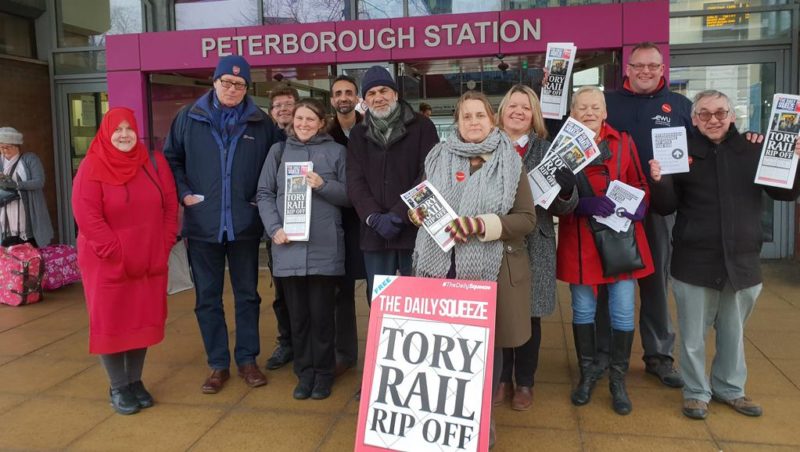Lisa Forbes For Peterborough

The rail rip-off is once again targeting commuters and passengers with an excruciating price hike of three percent – an increasingly regular occurrence in recent years.
Research from The Labour Party shows that in the last seven years, rail fares have soared by on average £700. This level of increase is unsustainable and is pricing people out of getting to work and solidifies the UK’s position as having the most expensive fares in Europe – around six times more expensive than some of our European counterparts.
This, just 15 months on from the disastrous 2018 Summer timetable launch that dogged the journeys of millions of commuters up and down the country.
The latest hike means that fares in the UK have risen by 40 percent in the last decade, twice as fast as the average wage increase, meaning the price of an annual season ticket from Peterborough to Kings Cross now costs £1944 more than it did in 2010.
With punctuality at its lowest in 13 years and customer satisfaction slumping to a 10-year low, you have to ask yourself how these fare increases are seen as justifiable by the Department for Transport and the private firms who operate our rail services.
The truth is they are not.
In fact, the very notion that Government is able to contract our essential rail services to the highest bidder should worry us all. At present, our railways are run like a competition, with those unable to meet their contractual obligations stripped of their tender, like Virgin and Stagecoach, who ran the East Coast Mainline until last year when the Government made the sensational move to bring the service back in house.
Incidentally, both companies have successfully bid on Government tenders since and continue to operate elsewhere in the UK.
Perversely, despite these constant price hikes and arguments about “efficiency”, Government direct subsidy of the railways is around £5 billion per year, an increase of over 200 percent since privatisation. So, we are all effectively paying for these services twice, once as passengers through fares and again as taxpayers.
There’s an argument that the best results for customers will become apparent if the market is free to operate. For example, supermarkets must incentivise people to shop with them, constantly earning customers with deals and rewards. Passengers do not choose from two simultaneous trains to board, based on appearance, comfort or price. They take the first train that comes.
Railways, like water, are a natural monopoly.
I believe that this makes a solid case for the transfer of our rail services away from extractive private interests to democratic public ownership, prioritising public service over profit by capping fares and ensuring our railways are accessible to all. This would take cars off the road and support the UK’s aims to be carbon neutral, as well as providing a modern, more reliable service to every part of the country.
The Tory experiment in rail privatisation, as with many public services now run for profit, has been a failure.
It is time to rethink our railways as a public service.
